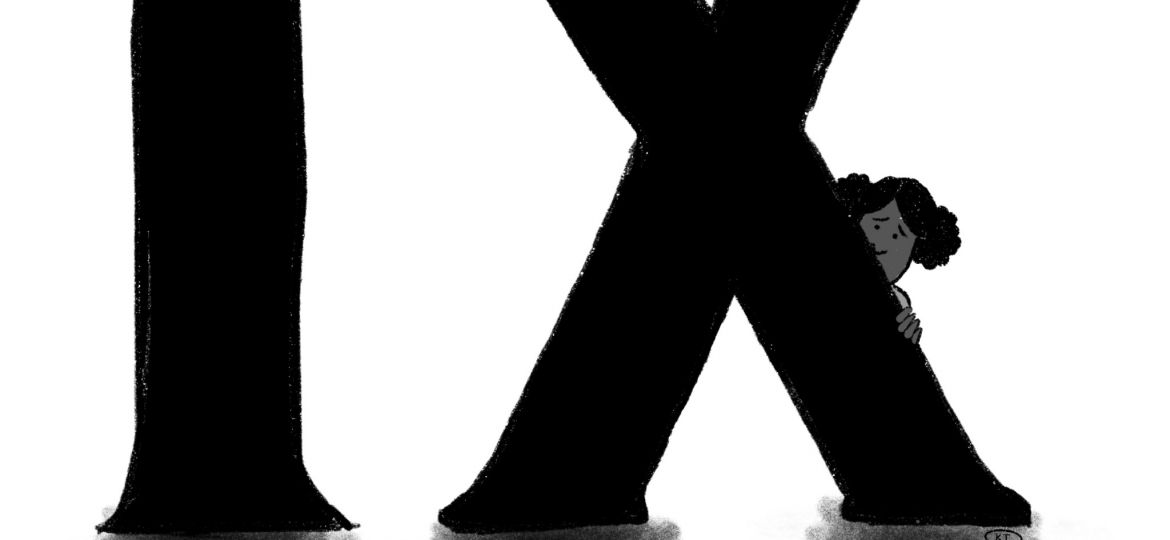
On May 6 of this year, the United States Department of Education released new regulations surrounding Title IX, a federal civil rights law that was passed during the Education Amendments of 1972.
The law prohibits sex discrimination of all kinds within education programs or any activity that receives federal funding or financial assistance. In order to stay legally compliant, St. Olaf adapted to these new regulations at the beginning of the fall 2020 semester.
These new regulations have been in process for years, with the department of education having released a draft in 2018 that was finalized this last year.
Once the finalized version was finalized by the government in May the changes were legally required to go into effect by August. This means that colleges and universities were working to sift through the almost 2,000 pages of federal regulations and implement them in just three short months.
The new regulations give an updated and clear definition of sexual harassment. The new definition includes conduct of a sexual nature that is “severe, pervasive and objectively offensive.”
This definition changes what Title IX considers sexual harassment. One-time comments or gestures may not be deemed sexual harassment by Title IX under this defninition.
However, sexual assault, dating violence, stalking and domestic violence are still defined under Title IX as sexual harrasment.
The scope of sexual harassment has also shifted in relation to location. For colleges and universities across the country, if an incident occurs on campus or at a school-sanctioned event, then it falls under the newest set of Title IX regulations for sexual harassment. This change means that if something happened at an off-campus residence or in downtown Northfield, the College is not legally required to respond.
An incident occurring outside of the United States — for example, on a study abroad program — even if it is campus-sponsored, is also not included in the Title IX changes.
Despite this change, the College has made it clear that it will continue to respond to cases that fall outside of this narrow Title IX scope. All allegations brought to the attention of St. Olaf will be responded to by the Title IX response team.
An important element that will remain the same is the intake and reporting process of sexual assault. Reporting parties will continue to have control over whether and when to initiate an investigation or informal resolution process.
“It is crucial for students in our community to be able to get help, understand their options, access resources, or other sorts of accommodations without feeling pressured to move forward in any way that they’re not comfortable with,” said Director of Title IX and Equal Opportunity Kari Hohn.
The bulk of all changes lie within the investigation and adjudication processes and includes new language, practices and procedures.
These changes include a baseline presumption of innocence for the accused, live hearings — including cross-examination — conducted by an advisor of choice for both parties, and increased access to both digital and physical copies of evidence.
“It is gonna make our process longer, and much more stressful for people to go through. I worry that that will be a deterrent for people not wanting to move forward and for some not wanting to report at all out of fear of the entire process,” said Hohn, “even though [St. Olaf] would never force someone to go through that.”
The policy change has been met with public concern. Some are concerned about the changes of scope, as well as the changes to the investigation process regarding the intensity of hearings and the presence of cross-examination.
“I just hope St. Olaf doesn’t follow the new regulation that off-campus accusations cannot be tried because that would make me feel very unprotected,” Reilly Friend ’24 said in a text to the Messenger.
St. Olaf’s Sexual Assault Resource Network (SARN) has also expressed some concerns with the new regulations.
“The changes to the Title IX Federal Law are deeply concerning and will impact survivors of sexual violence in a serious way. For example, the introduction of the ‘cross-examination’ clause will most likely prevent survivors from reporting or pursuing a formal investigation,” wrote SARN co-head Zoe Plewa ’21 in an email to the Messenger. “Many of the changes related to off-campus assaults will also allow institutions to ignore instances of violence perpetrated by and committed against their students. The Title IX changes are absolutely not survivor-centered.”
“Despite the changes that we have made to our policy, it is still true that the Title IX office is a resource for students first and foremost. If something happens, regardless of where it happened, when it happened, that individual can seek assistance from the Title IX office without fear that we’ll automatically move forward with next steps,” Hohn said. “If people are less interested in moving forward with the investigation process given these new changes, that will signify that we really need to emphasize the importance of prevention and education on campus.”
“I am hopeful that St. Olaf College will continue to support our survivors of sexual violence. We, as a community, need to step up and do the work to prevent all forms of violence on our campus,” Plewa wrote.
Confidential on-campus resources for survivors of sexual assault or domestic violence include SARN and Boe House Counseloring Center.
peacor2@stolaf.edu

